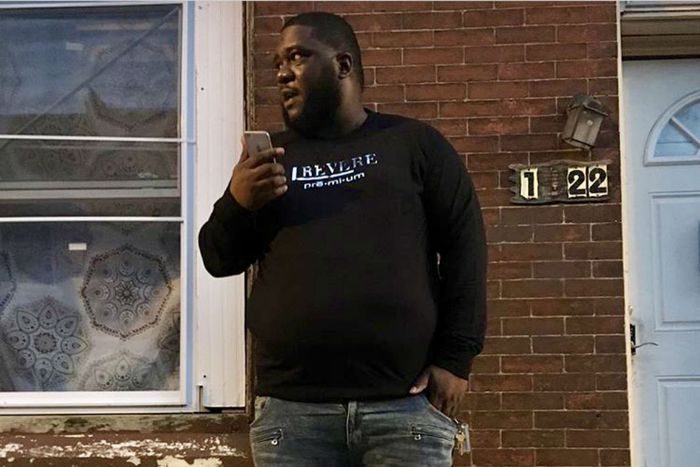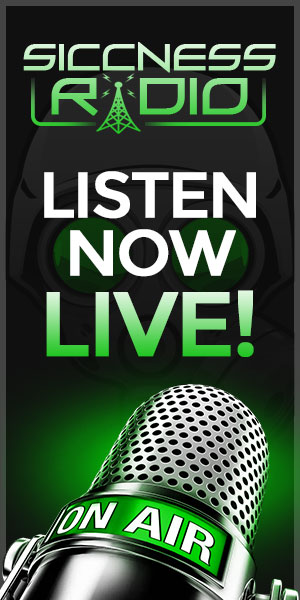With his hard-bitten lyrics boasting of drug-world dominance, gangsta rapper AR-Ab earned a legion of dedicated fans in his native Philadelphia and the respect of hip-hop heavyweights like Drake and producer Swizz Beatz.
But it was the truth behind those blistering tracks that sent him to prison Thursday for what could be the rest of his life.
A federal judge sentenced the 38-year-old rapper — whose legal name is Abdul West — to 45 years in prison, a staggering sentence for the tough-talking kingpin convicted in 2019 of turning the record label he founded, Original Block Hustlaz (OBH), into a large-scale North Philadelphia drug-trafficking organization implicated in at least one murder.
But while prosecutors alleged West had ordered the 2017 slaying of a drug-world rival, they did not charge him with that crime, and U.S. District Judge Michael Baylson repeatedly stressed Thursday that it wasn’t a consideration in his sentence.
Nor were West’s provocative lyrics — filled with bluster about his drug dealing and penchant for street justice. Instead, the judge said, the punishment he imposed was for West’s record of “antisocial behavior.”
“You could have been a hero instead of a criminal,” he said. “But you became a drug dealer. You made that decision. That’s why you’re being punished.”
West was unswayed, showing little remorse as he sat next to his lawyer with his arms crossed. When it came time to address the court, he dismissed the proceedings as a farce.
“The court, the FBI agents, and the prosecutors don’t understand my culture,” he said. “We don’t rap about flowers and rainbows. We’re gangsta rappers. We rap about where we grew up. So we rap about drug dealing. We rap about violence.”
Throughout his 2019 trial, West’s music and social media presence were put under a microscope, raising questions about just how much a genre defined by hypermasculine boasting of street-honed toughness can be taken at its word.
But prosecutors argued that his lyrics were more than just marketing: They amounted to confessions of crimes.
Jurors were shown several of West’s videos and dozens of Instagram posts that FBI agents said were directly linked to crimes by him or members of his crew.
Dozens of witnesses described West’s sizable narcotics-trafficking operation. Based in the same neighborhoods of North Philly where West grew up, it drew crack cocaine, heroin, and meth from California, and stored it in upscale Center City apartments that he believed would be less likely to draw law enforcement scrutiny.
“This wasn’t a case against gangsta rap,” Assistant U.S. Attorney Everett R. Witherell said in court Thursday. “Mr. West made it clear not just in his lyrics but in his social media that people should be afraid of him and his willingness to resort to violence.”
In one 2018 video released after FBI agents raided an OBH stash house at the One Water Street Apartments in Old City, West complained that the feds “took 10 of ‘em” — a reference to 10 kilograms of cocaine seized at the scene.
“Quarter million loss, got a broke heart,” he rapped. “And they snatched my dog, that’s the worst part. / One rat destroy everything you work for. / I pray to God that he don’t tell them who he work for.”
Prosecutors interpreted West’s lyrics in another video to be an admission that he ordered the 2017 murder of rival Robert Johnson, who was shot multiple times in the 4000 block of Benner Street in Wissinoming. A member of West’s circle, Dontez “Taz” Stewart, pleaded guilty to the murder and later testified against him and his codefendants.
“I’ll have da whole city scared,” West’s song says. “Stand near home / I call Taz and tell him / Brig dat n — ’s head to me.”
Investigators discovered the lyrics for that track, written four days after Johnson’s death, in a note in West’s phone.
Johnson’s mother struggled to express her grief to the judgeThursday, doubled over and sobbing as she stood at a lectern in the courtroom. Ultimately, she was guided out of the room, weeping.
West did not acknowledge her and maintained he had nothing to do with Johnson’s death.
He insisted he had said “way worse” things about fellow Philly rapper Meek Mill in a track he released before his arrest.
“And he’s still running around making millions,” West said.
In fact, West had made little effort to hide the truth behind his lyrics as his career took off from his battle-rapping days in
the early 2000s. He spoke plainly in interviews about growing up on a “crack block” in North Philly and inheriting his drug-dealing territory from a friend who got out of the trade.
“In his neighborhood, it was sports, rap, and selling drugs,” his lawyer, Edward C. Meehan Jr., said Thursday. “While he was able to achieve great success in the music industry, he was not able to outrun some of the problems he grew up with.”
Now, the future of West’s music career — and the label he founded in 2002 — remains in doubt. As a result of his prison sentence, AR-Ab, by far the label’s most popular rapper, could be incarcerated into his 80s.
Its second most renowned artist — Charles “Dark Lo” Salley, who was not indicted in West’s case — faces up to 20 years in prison after pleading guilty last month to sending threatening letters to Stewart before his testimony in West’s trial.
And many of the other rappers West had signed on have been arrested and sent to prison, including his codefendants in his drug conspiracy case.
But by the end of Thursday’s hearing, West had his mind turned toward an appeal.
“I’m not saying I’m innocent,” he said moments before U.S. marshals led him back to prison in handcuffs. “I’m saying I’m not guilty of all them charges.”
https://www.inquirer.com/news/ar-ab-sentenced-original-block-hustlaz-obh-abdul-west-philly-prison-20210415.html
















Speak On It!